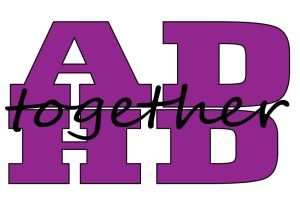Rejection sensitive dysphoria (RSD) is a common emotional challenge for people with ADHD. Here's how it manifests in my life and how I cope with it.
What is RSD and how does it relate to ADHD?
RSD is a term coined by Dr. William Dodson, an ADHD expert, to describe the intense emotional pain that some people with ADHD feel when they perceive or anticipate rejection, criticism, or failure. It's not a formal diagnosis, but rather a way of understanding how ADHD affects the emotional regulation and self-esteem of some individuals.
People with RSD may experience extreme emotional reactions to seemingly minor events, such as a negative comment, a slight change in tone, a missed deadline, or a rejection of any kind. They may feel ashamed, angry, depressed, anxious, or hopeless. They may also have a strong desire to avoid or escape the situation, or to lash out or seek revenge.
RSD is not unique to ADHD, but it's more common and severe among people with this condition. This is because ADHD affects the brain's ability to filter out irrelevant stimuli, regulate impulses, and manage emotions. People with ADHD may also have a history of rejection, criticism, or failure due to their symptoms, which can lower their self-esteem and increase their sensitivity to negative feedback.
How RSD affects me in my daily life
RSD is something I have been dealing with all my life, but I didn't know what it was until recently. I always thought I was just too sensitive, too emotional, or too insecure. I didn't realize that my ADHD was partly to blame for my intense reactions to rejection, criticism, or failure.
Here are some examples of how RSD affects me in my daily life:
- In my mind, I automatically assume that I am going to be rejected. Quite often, I will not ask for help, assuming that the answer will be no. And if somebody said no once, or said no to somebody else, I will not even try to ask. This limits the amount of help that I reach out and ask for.
- I tend to take things personally, even when they are not meant to be. For instance, if someone doesn't reply to my message, I assume that they are ignoring me or that they don't like me. If someone gives me constructive feedback, I feel like they are attacking me or that they think I'm incompetent. If someone cancels a plan, I feel like they don't value me or that they have better things to do.
- I often overreact to minor setbacks or mistakes. For example, if I forget to do something, I feel like a failure and that I can't do anything right. If I make a typo, I feel like an idiot and that I can't write well. If I lose a game, I feel like a loser and that I have no skills. These feelings can last for hours or days, and they can affect my mood, motivation, and productivity.
What I do to cope with RSD
RSD can be very debilitating and distressing, but it's not hopeless. There are some things that I do to cope with it and to reduce its impact on my life. Here are some of them:
- Education- about . Learning more about RSD and ADHD helps one understand why we react the way we do, and that it's not our fault or a sign of weakness. It also helps me recognize the signs of RSD and to challenge the negative thoughts that it triggers.
- Seek professional help. Seeing a therapist , helps develop coping skills and strategies to deal with emotions. Medication also helps manage ADHD symptoms and reduce anxiety and depression.
- Practice self-care. Taking care of physical and mental health by getting enough sleep, eating well, exercising, meditating, and doing things that I enjoy benefits ones mental heal. Also, try to avoid or limit things that trigger or worsen my RSD, such as alcohol, caffeine, social media, or toxic people.
- Seek support from others. I have a few close friends and family members who understand and accept me for who I am, and who support me when I'm feeling low. Together ADHDalso offers groups meetigs where people can connect with other people who have ADHD and RSD, and who can relate to what I'm going through.
Conclusion
RSD is a real and painful experience for many people with ADHD, including me. It can affect my self-esteem, my relationships, and my performance. But it's not something that I have to suffer alone or in silence. There are ways to cope with it and to live a fulfilling and happy life. I hope that by sharing my story, I can help others who struggle with RSD and ADHD, and let them know that they are not alone.
